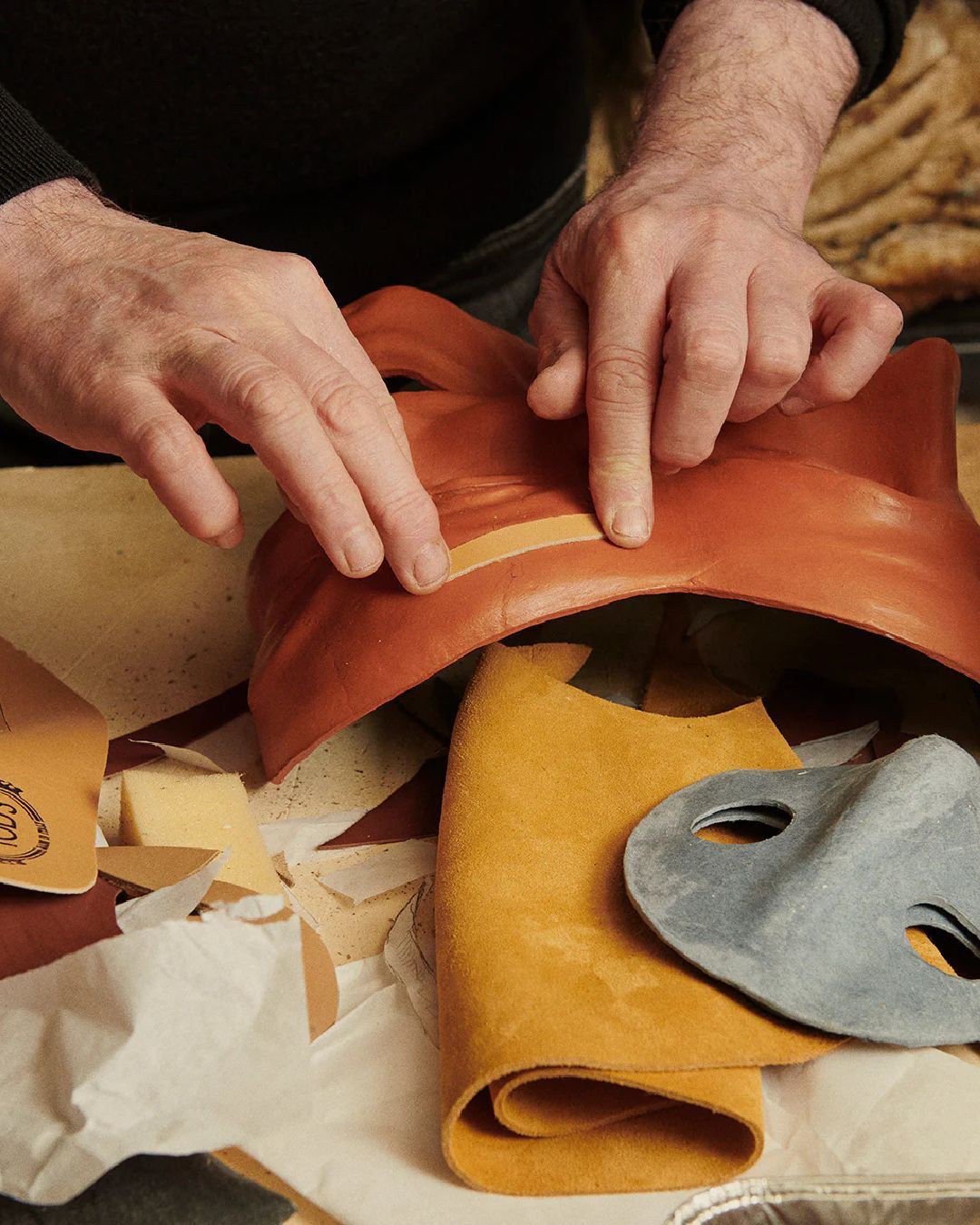
After Fast Fashion, Fast Deco When our interiors become the new victims of overconsumption
More than ever, our desire for freshness and novelty extends beyond our wardrobes to invade our living rooms, kitchens, and even our bathrooms. We change our decoration according to the seasons and trends, buying at low prices to keep up with the latest trends observed on platforms. Fast deco is this compulsive need for novelty that transforms our interiors into theater scenes where each season has its act, its set. On average, nearly half of the French renew at least once a year the elements of their living space. It is not surprising, then, that fast deco follows in the footsteps of fast fashion. The same insatiable appetite for change, the same ridiculously low prices that make us forget the true value of things. Brands proliferate, collections are renewed at a breakneck pace, and our planet pays a heavy price. Ikea, Maisons du Monde, Zara Home, H&M Home: all ride this wave, adding thousands of new references each year. The number of furnishing items has jumped by 88% between 2017 and 2022, flooding us with choices as useless as they are irresistible. But at what cost, exactly? In a report published earlier this month, the Zero Waste France association sounds the alarm on this mode of consumption. We'll explain everything.
@tommyhuerter Fast fashion and slow furniture #interiordesign #zara #zarahome #homedecor #homedesign #apartmenttherapy #review @ZARA @Zara Home Official original sound - Tommy Landen Huerter
Between 2017 and 2022, the furniture and decoration market in France almost doubled, from 270 million to over 500 million units. It's as if every French household buys 17 new decorative items each year. We no longer get attached to our furniture, we consume it. Result? A market estimated at 26 billion euros. Furniture, once life companions, has become ephemeral objects of our daily lives. This phenomenon has particularly intensified with the Covid19 pandemic and repeated lockdowns. Our living rooms have turned into offices, our bedrooms into gyms, and our balconies into urban jungles. Redecorating has become a therapy to cope with confinement and the mantra “home sweet home” has become a perpetual renovation project of emotional renovation. Major retailers also play a role, using various strategies to stimulate demand and increase sales. Ikea, the Swedish giant, adds about 2,000 new references to its catalog per year. For its part, Maisons du Monde keeps pace by offering 3,000 new references per year. The offer is plethora, satisfying all decorative whims and desires. As for Zara Home and H&M Home, these pioneers of fast fashion have quickly invaded our interiors with trendy and equally ephemeral products, riding the wave with disconcerting ease.
Online platforms are also added to the equation, with Amazon and Cdiscount, e-commerce giants, offering an infinite choice at the click of a button, 24 hours a day. These sites facilitate access to a multitude of products, encouraging impulsive purchases at any time of day or night. Shein and Temu, ultra-fast fashion platforms, were quick to invade the decoration sector. Offering objects at prices that defy all competition, they have reinforced the culture of instantaneity and disposability, turning interior decor into a market as volatile as fashion. Social networks can be considered the fuel of this infernal machine. Instagram, YouTube, TikTok: each "haul" deco, each "unboxing" creates an irresistible desire to reinvent one's interior. Influencers stage their spaces, brands offer flash promotions, countdowns, and other gamification strategies to encourage impulsive buying. The result? A frenetic consumption, exacerbated by the need to show, share, and conform to trends.
This dynamic of overconsumption, fueled by social networks, transforms our interiors into ephemeral showcases that are constantly renewed, with disastrous environmental and social consequences. According to Zero Waste, fast deco has led to a significant increase in furniture waste. Between 2014 and 2020, the amount of this waste doubled. In 2023, nearly 1.3 million tons of waste from furniture were collected in France, about 18.7 kg per inhabitant. And what about deforestation? Furniture production, especially in wood, to meet the growing demand, accelerates the process. According to estimates, Ikea, one of the largest furniture producers, uses one tree every two seconds for its production. Intensive exploitation occurs even in primary forests, where practices such as clear-cutting are commonly used. These unsustainable actions have serious ecological consequences and actively contribute to the loss of biodiversity and disruption of ecosystems. In the past, a piece of furniture was an investment for life. Today, it seems that our furniture has an integrated expiration date, programmed to encourage us to buy new ones every 15 or 20 years. The irony being that this decrease in durability is accompanied by an increased difficulty in recycling these products. Modern decoration and furniture items are often made of composite or mixed materials, making their recycling complex and costly. As a result, a large part of these products end up in landfills, exacerbating the waste crisis. As Pauline Debrabandere, campaign coordinator at Zero Waste France, highlighted, "if it's cheap, it's because there's another problem somewhere, at the other end of the chain and rather at the production level". As usual, behind the enticing prices often hide deplorable working conditions for those who manufacture our trinkets and furniture at the other end of the world. The social cost of fast deco is high, with workers exploited in factories where fundamental rights are often flouted in the name of profit. To top it all off, despite the increase in consumption of decorative products, the French furniture sector has not benefited from this growth. On the contrary, it has suffered a significant loss of jobs. In 15 years, the sector has lost a quarter of its workforce. Local manufacturers, often unable to compete on price and volume, are the most affected by this market evolution.
It is undeniable that fast deco, like fast-fashion, has become a real epidemic of consumption. The figures provided by Zero Waste France are alarming, revealing the magnitude of the problem and the urgency to act. But let's be clear: we are not without solutions. By promoting self-repair, upcycling, resource centers, recycling centers but also online platforms for reselling furniture such as Leboncoin or Selency, we can reduce waste and extend the lifespan of objects. Moreover, effective policies and regulations, such as a bonus-malus system and production quotas, can be implemented to regulate this overconsumption. These solutions are steps in the right direction, but they require a firm commitment from businesses, governments, and us, as consumers.















































